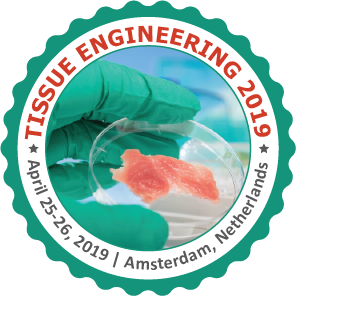Despoina Kesidou
University College London, UK
Title: The development of novel antibody-functionalized coronary artery stents for the promotion of endothelisation
Biography
Biography: Despoina Kesidou
Abstract
Cardiovascular disease (CVD) is the leading cause of mortality worldwide claiming almost 17.7 million deaths annually. Despite much progress in stent development, unwanted side effects are yet to be resolved. Since the main cause is poor endothelisation surrounding damaged vessels, there is increasing need for novel approaches to enhance endothelialization. We have developed a simple approach using polycarbonate-urea urethane pre-polymers, which can be easily coated on to metallic biomaterials such as 316L stainless steel and chemically modifi ed to produce amine groups. These groups can be exploited for site directed immobilization of monoclonal antibodies such as CD34+, CD31+, CD133+ that bind to endothelial cell receptors. Surface modifi cation was verifi ed using contact angle (θ°), ATRFTIR, ToF-SIMS, orange II assay and ELISA. EC based assays used Alamarblue®, total DNA and immunohistochemical staining to study the effect of these platforms on human umbilical vein endothelial cells. Our results demonstrate that antibody immobilization signifi cantly increased cell metabolic activity and proliferation (p<0.05). CD34 antibody immobilization resulted in an increase of ~54% in metabolic activity and ~62% in total DNA, the immobilization of CD31 antibody to ~60% increased metabolic activity and ~67% increased DNA, while CD133 immobilization led to an increase of ~56% in metabolic activity and ~63% in total DNA when compared with controls. Moreover, co-immobilization of an antibody mixture on a single platform resulted in ~65% increase in HUVEC metabolic activity and ~70% increase in total DNA. These results confi rmed that our approach can promote endothelisation in vitro, and current studies will explore their infl uence on in-stent restenosis and thrombosis.

